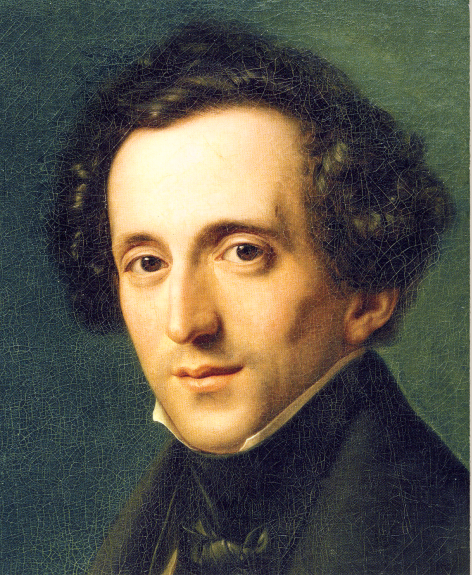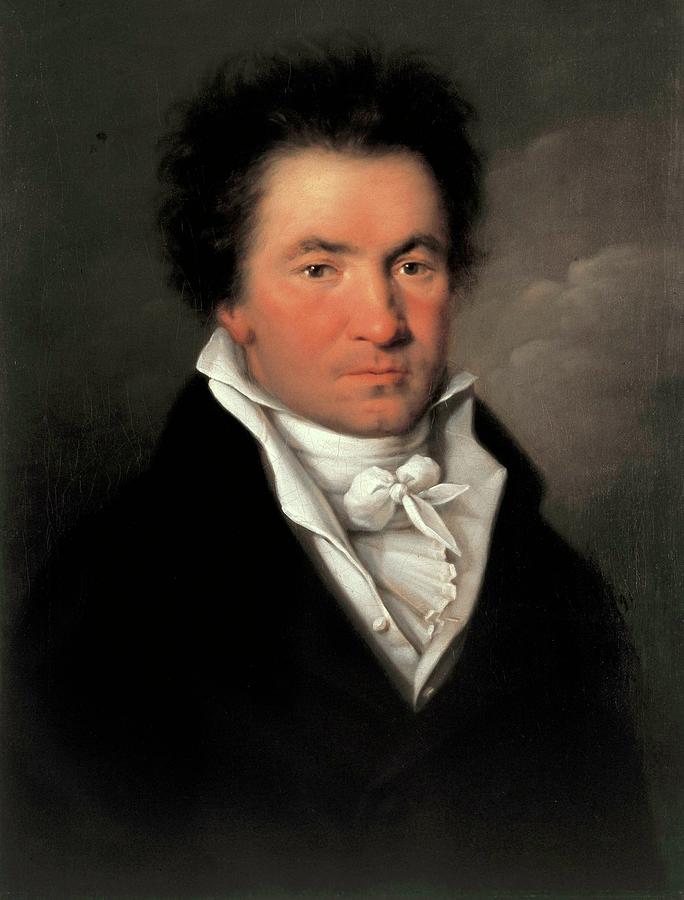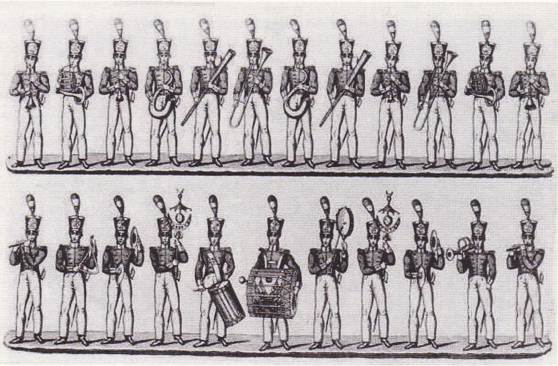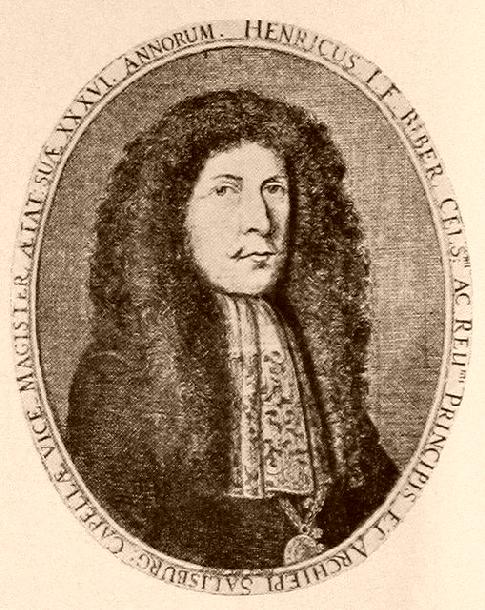Monday Musicale with the Maestro – October 19, 2020 – The Durham Symphony Orchestra Goes To War!
As Commander-in-Chief of the DSO, I hereby announce that we are now officially in a state of war with the Town Band of Garner, North Carolina. The reason for this unavoidable conflict is that we are short on large, very expensive percussion instruments, and the Garner Band has been selfishly stockpiling them for years. (Or at least that’s the rumor.) I am a devotee of the 19th century German philosopher Max Stirner, who said that if I want what belongs to you, and I can take it—and you are too weak to take it back from me—then your stuff is now my stuff. So, in this great tradition of Western Imperialism, the DSO and I are going to take those percussion instruments from the Garner ensemble that by rights should belong to US!
You have just read an egregious example of Fake News. There is no Garner Town Band.
Please remember to vote.
************************
I first bought a record with my own money when I was 12. It was a vinyl record. Remember those? And since this was 1966, the disc cost only $5 with 25 cents in tax. At the time, that seemed like a lot of money to me. (This was before my parents “suggested” that I earn my allowance money by actually doing chores—CHORES?!—around the house. Oy.) But this recording on the Mercury label, pairing the 1812 Overture (Tchaikovsky) with Wellington’s Victory (Beethoven), had unbeatable appeal—as perhaps it did for many boys interested in classical music. Both works are thunderous and exciting, calling for the sounds of weapons—yay! violence! Remember, this was before video games! These pieces are what I call Sonic Spectaculars (the title I’ve given to the Durham Symphony’s program of thrilling, large-scale works next April!) In my mid-teen years, Beethoven and Tchaikovsky were my favorites, and I spend my 14th summer listening almost exclusively to Beethoven’s 7th and Tchaikovsky’s 4th symphonies! What I loved about all these works, and still do, is their visceral, in-your face directness and their exploration of the heroic and tragic sides of life.
On October 30, 2011, the DSO and I did a concert titled War and Peace–and of course, it included Tchaikovsky’s 1812 Overture! But for this Monday Musicale we are featuring the other “war” pieces that were on that program—beautiful works that for the most part do not depict the real horror of battle.

First we present a work by Felix Mendelssohn (1809-1847) titled “War March of the Priests”—an example of his compositions for theatre. Along with Wolfgang Amadeus Mozart and Erich Wolfgang Korngold, Mendelssohn was one of the three greatest musical child prodigies of all time. In our September 28th Monday Musicale, I noted that Korngold composed an impressive orchestral work at age 15. But Mendelssohn wrote masterful and even more famous works in his teens, including his Octet for Strings (at age 16) and the Overture to Shakespeare’s A Midsummer Night’s Dream (at age 17). A composer of any age would have been proud to produce such remarkable compositions! Mendelssohn later contributed an hour of theatre music for a production of Jean Racine’s play Athalia, a tragedy based on episodes from the Bible. The most famous section is “War March of the Priests,” a solemn but vigorous processional. The work is perhaps most famous (in English-speaking countries) as the popular “graduation” march eventually supplanted by Elgar’s Pomp and Circumstance March No. 1.
War March of the Priests – Felix Mendelssohn
Durham Symphony Orchestra conducted by William Henry Curry
War and Peace Concert
Carolina Theatre October 30, 2011

Our second featured selection is the upbeat and exuberant Military March in C by Ludwig van Beethoven. When approaching Beethoven, we almost automatically think of the titanic and tortured genius who wrote some of the most deeply serious pieces ever composed. Between these “eruptions,” however, he wrote lighter music—perhaps to clear his mind of daily struggles, including his long battle with encroaching deafness. Robert Schumann noted this, describing Beethoven’s 4th Symphony as “a slender Greek maiden between two Norse Gods”: the Symphony No. 3“Eroica” (Heroic) and the iconic 5th Symphony with its imposing sense of Fate. Beethoven’s military marches for band are further examples of the relaxed vein in his work.

The Military March in C was written in 1810 for use by military regiments. For centuries, drums, bugles, fifes, and bands comprised of woodwind, brass, and percussion instruments have called soldiers to fight, to retreat, and to assemble for meals or funeral services. This jaunty march by Beethoven is specifically titled a zapfenstreich, or tattoo: a piece used to call the troops back to their quarters at night.
Military March in C – Ludwig van Beethoven
Durham Symphony Orchestra conducted by William Henry Curry
War and Peace Concert
Carolina Theatre October 30, 2011
Our final work today is by Heinrich Ignaz Franz von Biber (1644-1704), a Bohemian/German composer and virtuoso violinist who wrote many challenging pieces for that instrument, including his Mystery (or Rosary) Sonatas.

Today’s DSO performance features Biber’s 1673 work Battalia (Battle), a work I first conducted with the Saint Paul Chamber Orchestra in 1984. Though the piece was over 300 years old at that time, the 1984 performance was its mid-Western premiere, and it deserves to be better known. It created a sensation at our concerts!
Battalia is a very early example of descriptive music (a.k.a. “program music”). Such instrumental works may, for example, tell a story (Prokoviev’s Peter and the Wolf); depict nature (Vivaldi’s The Four Seasons); or portray a profound personal journey (Beethoven’s Symphony No. 3 “Eroica”). Battalia is a work for strings in seven short movements, each of which depicts an aspect of a soldier’s life.
This first audio link below contains my remarks from the 2011 concert explaining the highly original (even visionary) special effects Biber calls for in this work, anticipating certain musical techniques from the 20th century.
Introductory Remarks to Franz Biber’s Battalia by William Henry Curry
Durham Symphony Orchestra – War and Peace Concert
Carolina Theatre October 30, 2011
Battalia – Hienrich Ignaz Franz von Biber
Durham Symphony Orchestra conducted by William Henry Curry
War and Peace Concert
Carolina Theatre October 30, 2011
By the way, a half century after buying it, I still have that Mercury recording of the 1812 Overture and Wellington’s Victory! Despite its worn-out record jacket and “low-fi” sound, it evokes in me feelings of nostalgia and thoughts of Destiny. As Fate would have it, that first recording had a rather striking connection to my early professional life in the person of its Hungarian conductor, the great Antal Dorati.
On April 12, 1976, it was Dorati, then Music Director of the National Symphony Orchestra in Washington, D.C. who changed my life forever. The Music Director of the Richmond, Virginia Symphony had suddenly became indisposed and was unable to conduct that evening’s performance of Beethoven’s 9th Symphony. I was playing in the viola section, and I noticed at the dress rehearsal that this usually vibrant conductor seemed unsteady and frail. That night, the frantic Richmond Symphony Orchestra Board of Directors put in an emergency phone call to Dorati to see if he could replace the ailing conductor. “Don’t you have an assistant conductor?” Dorati asked, irritated. And when the reply was a reluctant “Yes,” he angrily replied, “Well, let THEM conduct it!” and hung up. Nine months before, I had been hired as the Richmond Symphony’s Assistant Conductor but was denied the title for a reason I would learn only later: because I am African-American. However, twelve hours before the performance their Board of Directors had run out of replacement options. So they asked me to conduct and immediately bestowed on me the title of Assistant Conductor. Thus began my conducting career, at the age of 21, with a rousing and unexpected triumph directing Beethoven’s 9th. Thank you, Antal Dorati, for inadvertently giving me my first major success!
William Henry Curry
Music Director
Durham Symphony Orchestra
Celebrating Maestro Curry’s 50 years conducting &
11 years with the Durham Symphony!
Enjoying the Music?
If you like what you’re seeing, please donate and let us know!
No matter the amount, we are grateful for your support and excited to bring you our music!
This project was supported by the Durham Arts Council’s Annual Arts Fund, the N.C. Arts Council, a division of the Department of Natural & Cultural Resources, and Triangle Community Foundation.




